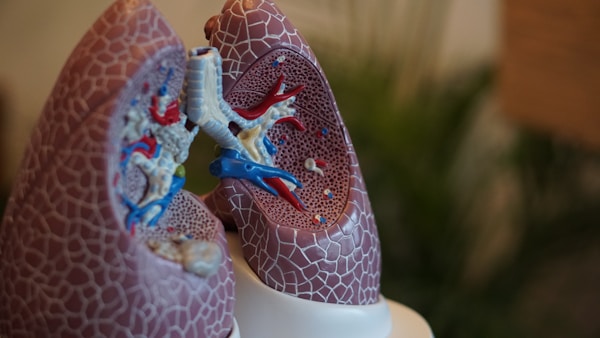 You wake up one morning feeling dizzy and probably don’t want to work. You need to call your boss to let them know how you are doing. Perhaps a friend calls to ask about your well-being, and all you want to talk about is how terrible you are.
You wake up one morning feeling dizzy and probably don’t want to work. You need to call your boss to let them know how you are doing. Perhaps a friend calls to ask about your well-being, and all you want to talk about is how terrible you are.
Is it awful? If so, you should consult your doctor for medical help. Upon answering a series of phone questions, your doctor suggests you go to the emergency room immediately as you may have a severe illness. How did the doctor come up with such a conclusion without performing some tests? In truth, they did not just make a guess. Based on your healthcare data and deductive reasoning, your physician concluded your current health status.
This article focuses on clinical decision support (CDS) and how AI transforms clinical decision support systems.
Where does AI get into the picture?
Essentially, medical professionals learn clinical decision support to assist them in clinical decision tasks. As such, they get it right most of the time.
When they get it wrong, it can be pretty devastating. Recent studies reveal that errors in diagnosis affect 10% of all fatality cases in the US. This indicates that more needs to be done, and that is precisely where artificial intelligence in clinical decision support comes into the picture.
What is clinical decision support?
CDS is a system that provides healthcare professionals with filtered relevant information to enhance the health of patients. It encompasses tools like automated alerts and reminders to improve the healthcare sector decision-making process. As such, CDS can impact the improvements in terms of quality, safety, and efficiency of any healthcare facility.
Because of this, the National Coordinator’s office of health IT (ONC) supports its development and implementation in healthcare decision-making. Even so, AI-powered decision support is getting more attention. Artificial intelligence is being utilized in clinical decision support. Still, in many ways, it does not replace the clinician; instead, it acts as an intelligent assistant that helps clinicians make the right decision.
Types of AI-powered CDS include software that:
- Examines laboratory data to single out patients who have cardiovascular diseases
- Reviews patients’ information to discover painkillers meant for allergy medication to alleviate allergy symptoms
- Examines heart rhythms to uncover abnormalities related to atrial fibrillation
What CDS is not:
- You cannot use CDS to calculate calorie intake daily
- A medication management app meant to organize data entered by the clinician
- A fitness watch to lose weight
In addition to supporting clinicians in the decision-making process, healthcare providers use CDS software to order tests and identify errors concerning prescriptions. We’ll now focus on what CDS software can offer clinical decision support.
The use of AI in clinical decision support
CDS has been around for years to assist. However, some of these CDS systems have been detached solutions with no point of care for patients, often generating imprecise alerts leading to alarm fatigue on the side of physicians and nurses- something that can contribute to adverse outcomes.
As a result, developers and researchers have collaborated to develop a robust solution in artificial intelligence and machine learning. These innovative tools have made clinical decision support systems more efficient and creative, leading to more advanced patient care.
How is artificial intelligence transforming clinical decision support systems?
AI-powered clinical decision support can analyze extensive data and suggest the necessary steps a physician should undertake for treatment. Leveraging information collected from electronic health records is also possible due to the high amount of actual data obtained from records and advances in AI.
Undoubtedly, AI-powered clinical support systems can break down data in ways humans cannot. An example is given of scientists in Germany who developed a machine learning technique to improve leukemia diagnosis. The scientists achieved this by evaluating blood and bone marrow samples to produce results clinicians can verify to make a final decision. At best, the tools analyze samples much faster than traditional analytical methods.
Also, Google’s Artificial Intelligence team developed CDS software that explores images at the back of the eye to detect diabetic retinotopy and diabetic macular edema, which is the starting point of blindness.
Another example is the ability to diagnose pulmonary conditions from chest X-rays by offering users two options: physician-led or machine-led. It is possible to analyze and classify diseases accurately with these two options, even though the results are enhanced by human expertise. As such, a model that combines human and machine expertise works more effectively.
Benefits of artificial intelligence in clinical decision support systems
Many unseen benefits are making strides toward making a better life for everyone. Most people need to be aware of the benefits of using AI. Here are the most benefits of utilizing AI in clinical decision support systems:
- Making the right decisions
Clinicians can make more informed decisions in shorter periods by using AI-powered CDS. In essence, when it comes to advisory roles, these systems suggest the most appropriate practice for post-surgical patient discharge, prescribe medication, and coordinate follow-up care for patients. Patients can also decide on alternative treatment in the shortest time possible, thus reducing the chances of any medical errors by getting a support system that counter-checks any decisions or requests.
- Intensifying diagnostic accuracy
The risks of diagnostic errors in patients cannot be overemphasized. As such, diagnostic mistakes are not only costly but also deadly. According to recent research, misdiagnosis contributes to many untimely deaths and extended hospital stays for patients in emergency rooms. By using AI in clinical settings, clinicians can detect early life-threatening ailments among patients so they can receive immediate treatment.
The Sepsis watch is one example that aids doctors in identifying early signs of Sepsis among patients. The Sepsis watch identifies patients at high or medium risk and those who have already been infected.
By extension, the number of deaths resulting from Sepsis has significantly decreased. Overall, through automated symptom analysis, AI enhances the accuracy of patients’ diagnoses. For instance, early symptoms of leukemia among children are detected when the microscopic blood images of patients are scrutinized.
- Assisting physicians
Physicians experience common problems related to clinical burnout, especially when subjected to an alert state of potential complications daily. Sometimes, they are called upon to assist in identifying, preventing, and resolving health-related problems.
For this reason, AI-based CDS is implemented to ensure medical professionals execute their duties efficiently while capitalizing on the available information. Ultimately, nursing practitioners and social workers can follow an MSN career through the online master’s degree in nursing education at Walsh University to understand their patients’ daily patterns and needs in depth, while also gaining an understanding of the new, emerging technologies that are impacting the nursing industry.
Grand challenges in the utilization of AI in clinical decision support
AI tools are exceptional; sometimes, they work like magic, but they do, however, have limitations, as discussed below:
- Unexplainable AI
Healthcare professionals are bound to be skeptical regarding AI’s explainability in decision-making. A medical PR team’s skepticism usually stems from their inability to understand how the AI system processes data or how algorithms are equipped to learn untaught things. It only makes sense to know more about AI and the reasons behind AI’s unexplainable features.
- The need to improve data quality for building quality algorithms
Most healthcare professionals need access to their data. Incidences of data inaccuracies and missing information are too common in a healthcare facility. All healthcare facilities should analyze their data before adopting AI clinical decision support.
The CDS system is most effective when machine learning algorithms provide sufficient and qualitative data. As luck would have it, AI improves data quality by guaranteeing the accurate capture and standardization of information.
- It takes time to get users on board
Implementing artificial intelligence is like changing an entire management project. While changing a project, the human dimension is more relevant than the changes in processes and protocols when hospitals implement an AI solution.
Though challenging, physicians and nurses are trained to use AI to enhance their understanding of the solution. Involving medical professionals in designing and delivering AI-powered clinical decision support brings sizeable benefits, including developing a better-performing and quality AI solution.
- AI performance that leads to trust may take longer than expected
Artificial intelligence solutions can sometimes cause unintended concerns and adverse effects. When a cutting-edge AI solution is implemented, healthcare professionals may have high expectations regarding its performance, particularly the sensitivity of the model results.
Based on the complexity of the tasks ahead, clinicians may not be willing to tolerate errors based on the sensitivity of error levels. Such occurrences are challenging, especially when doctors have difficulty understanding the prediction of a medical outcome.
In a nutshell, CDS has existed for many years. However, innovative systems that center on artificial intelligence and machine learning outperform those outdated algorithms. In essence, the future of AI-powered CDS software is bound to improve significantly over time. With this in mind, physicians can make more informed decisions.
With the aid of these intelligent assistants, diseases can be prevented and treated more accurately to reduce healthcare costs and improve the health of the growing population. It is without a doubt that artificial intelligence software development in clinical decision support represents the future of nursing and medicine as a whole.







2 comments
I have noticed that there are more and more requests for web development at the moment. Especially this area is of interest to businessmen. The company I work for also chose this for video sdk. To do this, I found an article on this topic and sent it to the instructor. This greatly simplified the search for the necessary information on the topic. I hope this is useful for you too.
Thank you for this information. This is very helpful for me. Perhaps you can help me. The thing is, I have a business. But since I started working online, I have had constant problems with video communication. Who can help me?